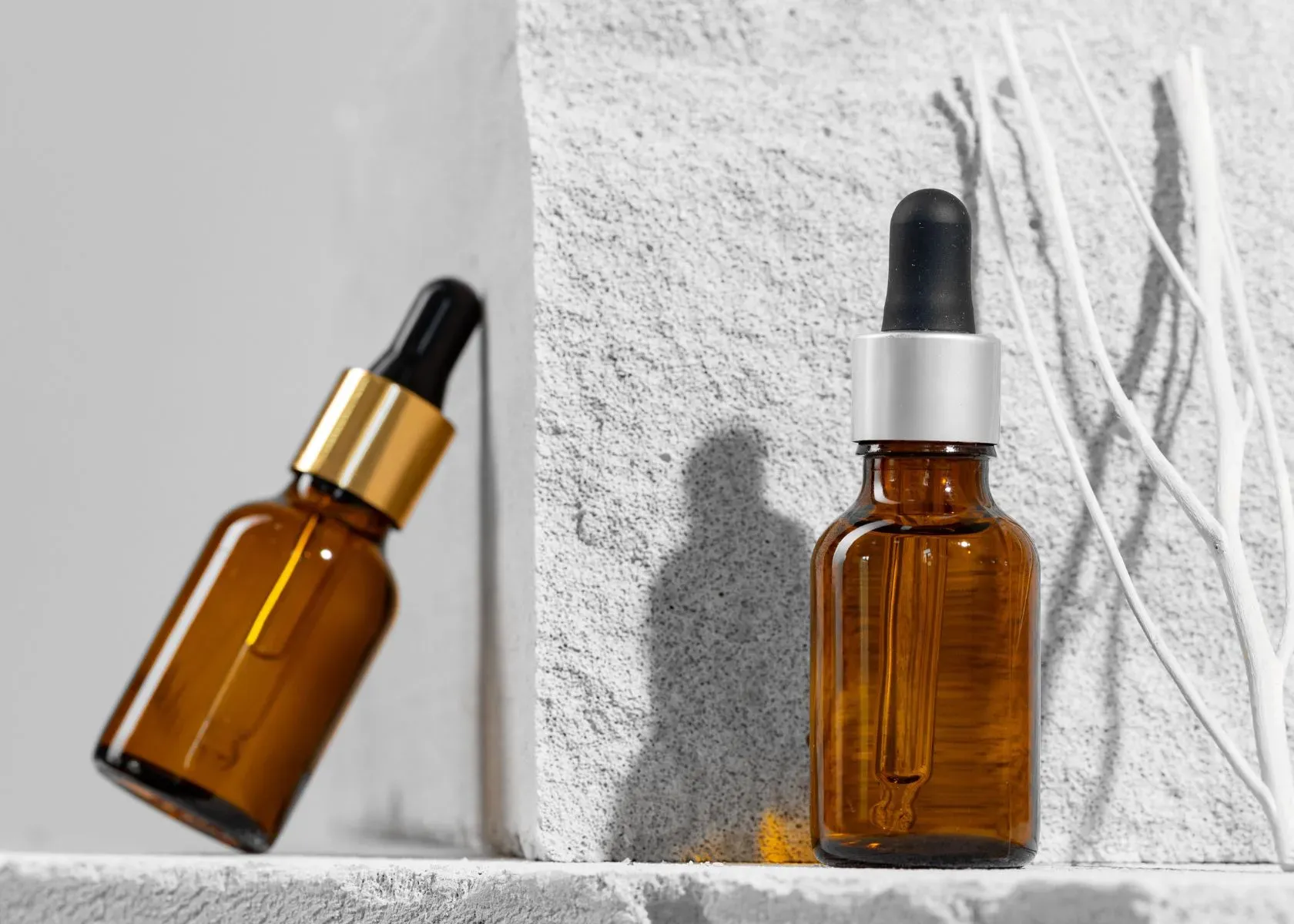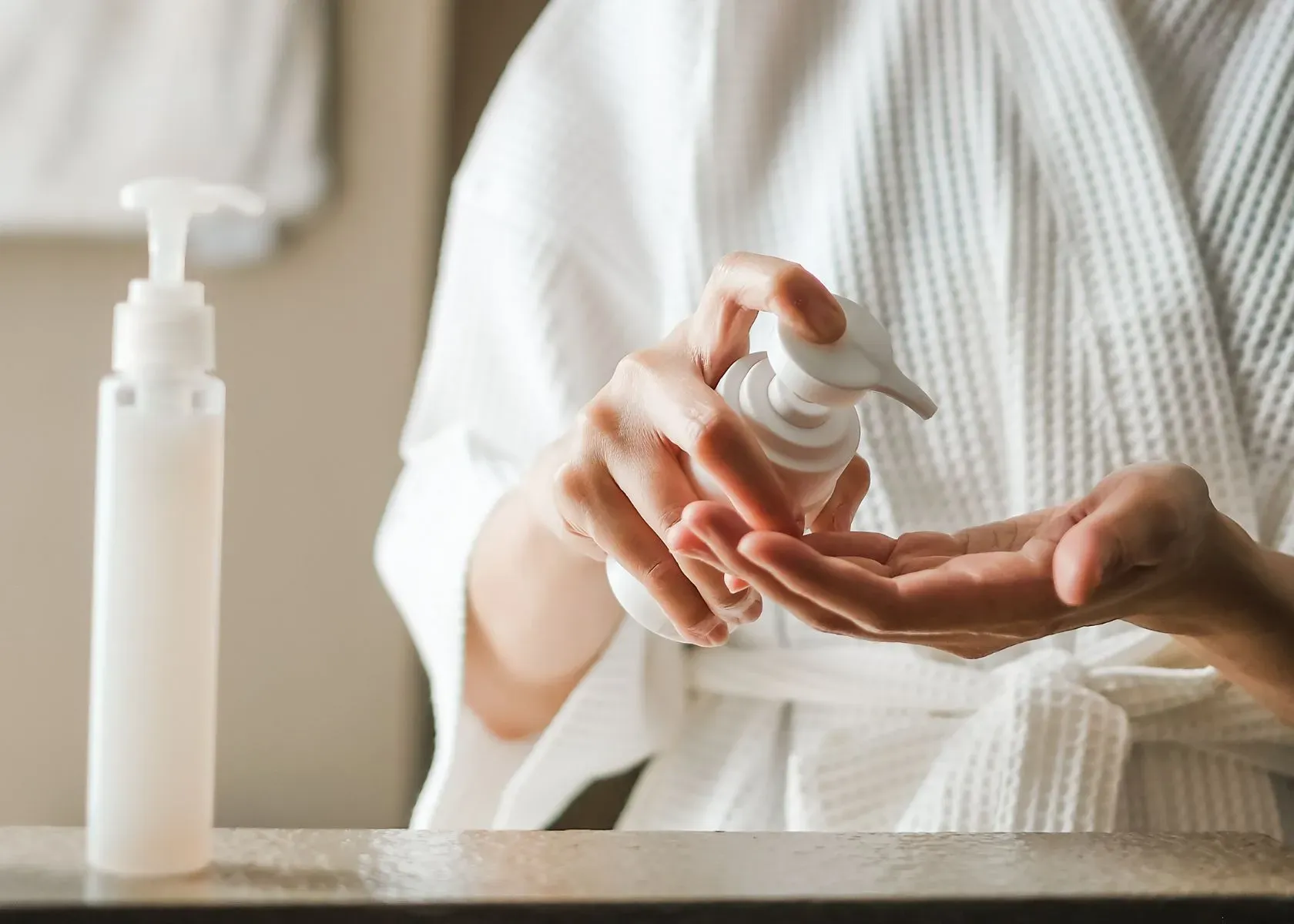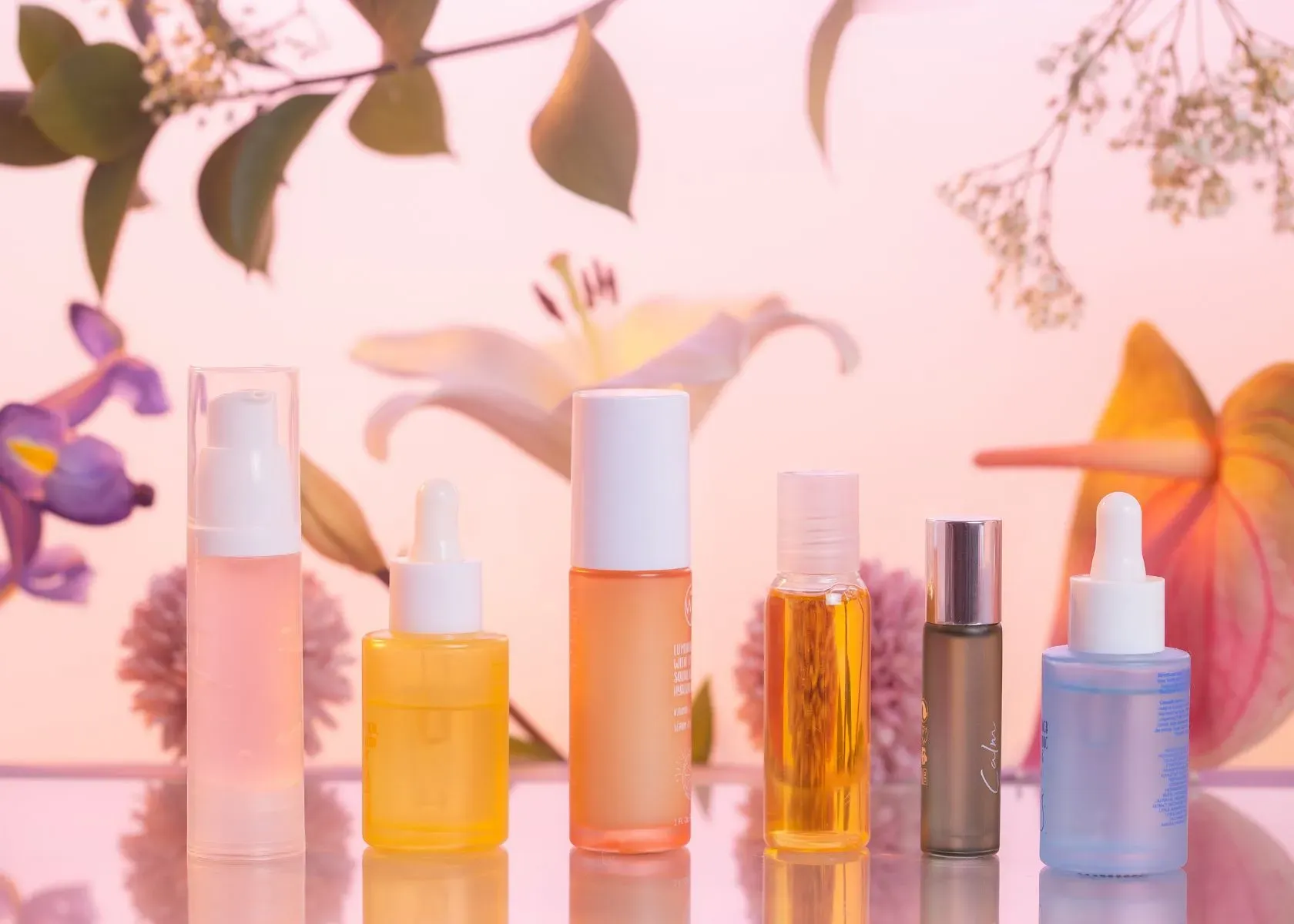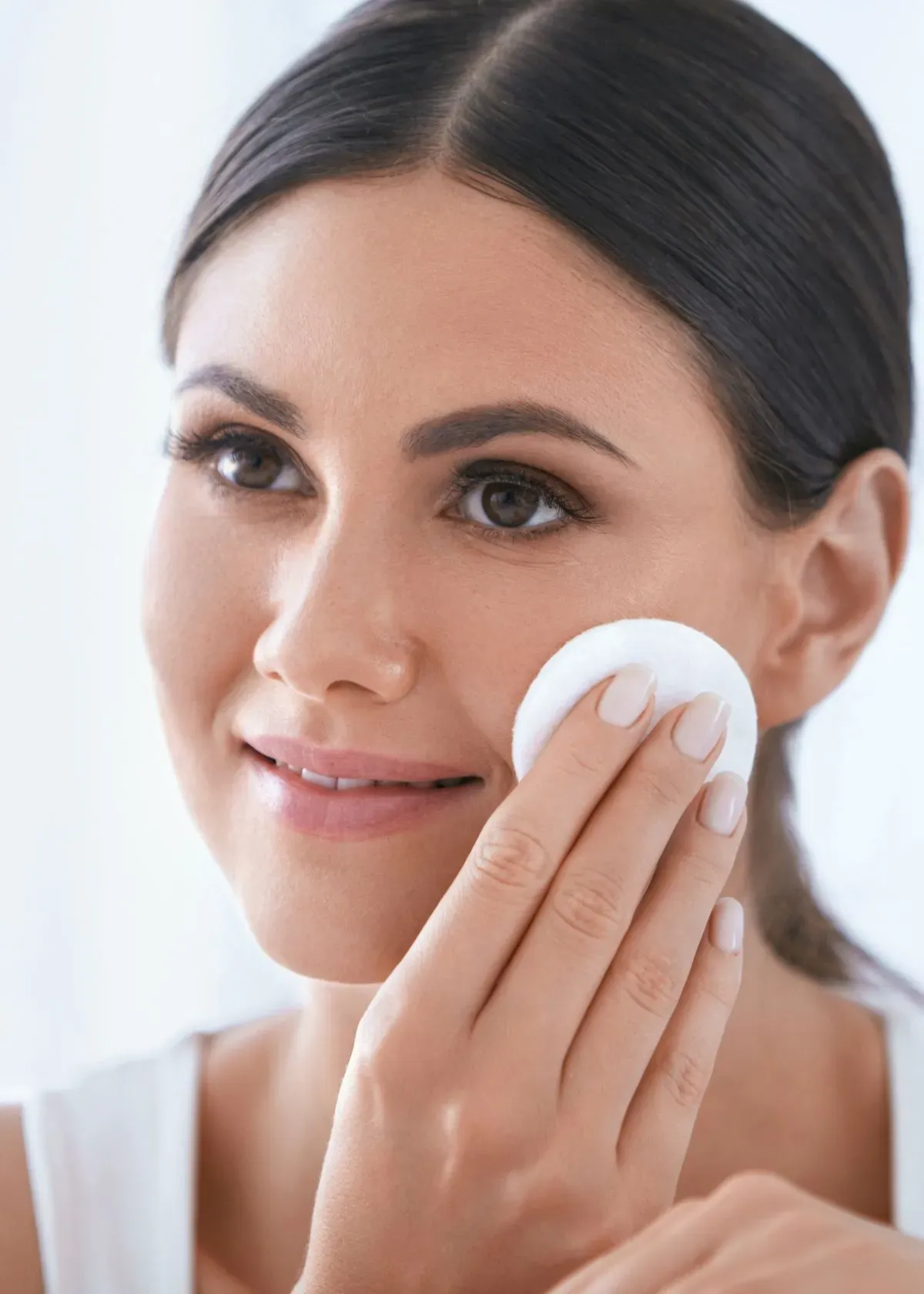Do you ever find yourself pondering whether it's possible to use vitamin C serum without including a toner in your skincare routine? Trust us; we have asked ourselves the same question, too!
After extensive research and experimentation, we can confidently report that using a serum, even without a toner, is absolutely doable.
So, let's get right into how you can introduce this potent antioxidant into your routine and achieve that radiant glow that will undoubtedly turn heads!
Difference Between Toner and Serum

When it comes to skincare, the market is flooded with a variety of products, each claiming to offer unique benefits. Two popular products that often confuse people are toners and serums.
While toners and serums play crucial roles in a skincare routine, they have distinct differences in their formulation and purpose. Let's dive into the details:
Formulation
- Toner: Toners typically have a watery consistency and are formulated with water-based ingredients like floral waters, herbal extracts, or hydrosols. They may also contain a small percentage of alcohol, glycerin, or witch hazel.
- Serum: Serums, on the other hand, have a more viscous or gel-like consistency. They are usually water-based but often contain a higher concentration of active ingredients like vitamins, antioxidants, peptides, or hyaluronic acid.
Purpose
- Toner: The primary purpose of a toner is to balance the skin's pH levels after cleansing. It helps remove any remaining traces of dirt, oil, or makeup and prepares the skin for better absorption of subsequent skincare products.
- Serum: Serums are highly concentrated formulations designed to address specific skincare concerns. They deliver potent active ingredients directly into the skin, targeting issues like fine lines, wrinkles, hyperpigmentation, or dullness.
Application
- Toner: Toners are typically applied after cleansing the face. They are either poured onto a cotton pad and gently wiped across the skin or sprayed directly onto the face.
- Serum: Serums are usually applied after toning and before moisturizing. A small amount is dispensed onto fingertips and gently massaged into the skin until fully absorbed.
Frequency of Use
- Toner: Toners can be used daily, both morning and night, as part of a skincare routine. However, individuals with dry or sensitive skin may choose to use them less frequently.
- Serum: Serums are generally recommended for daily use, but the frequency may vary depending on the specific formulation and the individual's skin type.
It's important to note that while toners and serums have their distinct purposes, they can complement each other within a skincare routine. Toners provide a refreshing and preparatory step, while serums deliver targeted ingredients to address specific skin concerns.
Purpose of Toner and Serum

Toner is essential for balancing the pH level of our skin and removing any remaining impurities after cleansing, while serum provides our skin with concentrated moisture and nourishment.
Toner for balancing pH and removing impurities
Toner works as a crucial part of the cleansing process, efficiently eliminating impurities left behind on the skin.
It helps to rebalance your skin's pH after cleansing and prepares it for the absorption of other skincare products. It also makes skincare products less sensitive for an acne-prone skin type.
Using toner independently removes additional dirt or make-up that may have been missed during cleansing. This powerful tool also aids in minimizing pores and restoring an even complexion by getting rid of dust, pollution, and contaminants that might stick to your face throughout the day.
Plus, balancing our skin’s PH levels assists in better-controlling oil production, reducing shine while maintaining hydration where needed—especially important for those with oily or combination skin types. Use a salicylic acid or witch hazel toner for acne-prone or oily skin.
Serum for concentrated moisture and nourishment
Using a serum is an excellent way to provide your skin with concentrated moisture and nourishment. Serums are formulated with powerful ingredients that penetrate deep into the skin, delivering hydration and nutrients where they are needed most.
Vitamin C serums, in particular, are known for their ability to brighten the skin and promote a more youthful appearance. By incorporating a serum into your skincare routine, you can give your skin an extra boost of hydration and help improve its overall health.
Vitamin C serums contain high levels of antioxidants that protect the skin against environmental damage and free radicals. This can help reduce the signs of aging, such as fine lines and wrinkles.
Additionally, serums can also work wonders for dry or dehydrated skin by providing much-needed moisture. They have lightweight textures that allow them to be easily absorbed by the skin without leaving it feeling greasy or heavy.
After cleansing, apply a small amount of serum to your fingertips and gently pat it onto your face until fully absorbed. Follow up with a moisturizer to lock in the benefits of the serum.
Benefits of Using Toner and Serum Together

Using toner and serum together provides several benefits for the skin. It improves the absorption of products, enhances skin hydration, and reduces the appearance of fine lines and wrinkles.
Improved absorption of products
Using a toner before applying a serum can actually improve the absorption of products into the skin. Toner helps to balance the pH levels of your skin, creating an optimal environment for your serum to penetrate deeper and work more effectively.
By removing any impurities or excess oil from the surface of your skin, toner helps to ensure that your serum is able to fully absorb and deliver its concentrated moisture and nourishment.
This ultimately enhances the overall effectiveness of your skincare routine and allows you to reap maximum benefits from using both toner and serum together.
Enhanced skin hydration
Using a vitamin C serum can greatly enhance skin hydration. Vitamin C is known for its ability to attract and retain moisture, making it an excellent choice for those with dry or dehydrated skin.
When applied topically, the serum penetrates deep into the skin, delivering intense hydration and leaving your complexion looking plump and radiant.
The concentrated form of vitamin C in serums allows for maximum absorption by the skin, ensuring that the hydrating benefits are fully utilized.
By incorporating a vitamin C serum into your skincare routine, you can enjoy long-lasting hydration that helps to keep your skin looking healthy and nourished.
Reduced appearance of fine lines and wrinkles
Using a vitamin C serum can help reduce the appearance of fine lines and wrinkles. Vitamin C is known for its powerful antioxidant properties, which can help protect the skin from damage caused by free radicals and remove dead skin cells.
It also helps stimulate collagen production, which can improve skin elasticity and reduce the appearance of fine lines and wrinkles over time.
Incorporating a vitamin C serum into your skincare routine gives your skin the extra boost it needs to maintain a youthful and radiant complexion.
Remember to cleanse and tone before applying the serum for maximum absorption and effectiveness.
Can You Use Serum Without Toner?

Yes, you can use serum without toner, but using a toner can improve your skincare routine's results.
Using a toner alongside your vitamin C serum can enhance the results of your skincare routine. While it is possible to use the serum without a toner, incorporating a toner into your regimen can help balance the pH levels of your skin and remove any remaining impurities.
This creates an optimal environment for the serum to work its magic, improving absorption and ensuring that it delivers maximum benefits.
So, while you can certainly skip the toner step, using one can lead to even better outcomes for your skin.
Cleansing is still important for serum efficacy
To ensure the efficacy of your serum, cleansing your skin is still crucial. Before applying a vitamin C serum or any other skincare product, it's important to start with clean skin.
This helps remove impurities and allows the serum to penetrate more effectively into the skin. Cleansing also ensures that the serum doesn't mix with any dirt or oils on the surface of your skin, maximizing its absorption and potential benefits.
So, don't skip this essential step in your skincare routine to make sure you get the most out of your serum.
How to Incorporate Vitamin C Serum into Your Skincare Routine?

After cleansing and toning your skin, apply a small amount of vitamin C serum onto your face, avoiding the eye area. Gently pat the serum into your skin until it is fully absorbed, and then follow with a moisturizer for maximum hydration and nourishment.
Once you have cleansed and toned your skin, it's time to apply your vitamin C serum. This step is crucial for delivering concentrated moisture and nourishment to your skin.
By applying the serum after cleansing and toning, you allow it to penetrate deeply into the skin, targeting issues like dark spots or hyperpigmentation.
Remember to use a small amount of serum and gently pat it onto your skin before moving on to moisturizer.
Ingredients to Avoid When Using Vitamin C Serums

Vitamin C serums have gained immense popularity in the skincare industry for their ability to brighten the complexion, fade dark spots, and boost collagen production. However, it's important to note that not all skincare ingredients play well with vitamin C.
Some combinations can cause skin irritation or reduce the effectiveness of the serum. Here are some ingredients to avoid when using vitamin C serums:
Retinol (Vitamin A)
Retinol is a potent ingredient known for its anti-aging properties. While both retinol and vitamin C offer numerous benefits for the skin individually, combining them can be too harsh for some people.
The combination of these two powerful actives may lead to skin irritation, dryness, or sensitivity. If you want to incorporate both ingredients into your skincare routine, it is generally advised to use them at different times of the day or on alternate days.
Benzoyl Peroxide
Benzoyl peroxide is commonly used to treat acne due to its antibacterial properties. However, when combined with vitamin C, it can oxidize the vitamin C molecule, rendering it less effective.
This combination can also cause skin dryness and irritation. It's best to use benzoyl peroxide in a separate step of your skincare routine, such as in a cleanser or spot treatment.
Niacinamide
Niacinamide, also known as vitamin B3, is a beneficial ingredient that helps improve the skin barrier, reduce redness, and regulate sebum production. However, when combined with vitamin C, there is a potential risk of the two ingredients canceling each other out, reducing their efficacy.
If you want to use both ingredients, it's best to apply them during different parts of your skincare routine or alternate them on different days.
Hydroquinone
Hydroquinone is a skin-lightening ingredient commonly used to treat hyperpigmentation. When combined with vitamin C, it may cause skin irritation or increase the risk of developing hypersensitivity reactions.
It's best to consult with a dermatologist before using hydroquinone alongside vitamin C serums to ensure compatibility.
If you're unsure about combining specific ingredients with your vitamin C serum, consulting with a skincare professional or dermatologist for personalized advice is always a good idea.
Always perform a patch test before introducing new products or combinations into your skincare routine to check for adverse reactions.
The decision to use a toner alongside a vitamin C serum depends on your personal preference and skincare goals. If you enjoy the added benefits of toner and find that it enhances the overall effectiveness of your skincare routine, it's perfectly fine to include it. I personally feel that using a toner before Vitamin C serum leaves my skin more radiant and exfoliated.
Can I Use Vitamin C Serum Without Toner- FAQs
We know you might have questions. Here are some of them answered!
Can I apply vitamin C serum without using a toner?
Yes, you can use Vitamin C serum without toner as part of your daytime or nighttime skincare routine for skin health. If you want exfoliation, use a toner with glycolic acid. However, if you want to control acne or oily skin, you should use a toner with salicylic acid for the best effects.
How often should I use vitamin C serum on my face?
You can safely use Vitamin C Serum twice a day to fully reap its beauty benefits for your skin's radiant glow.
Do I need a specific routine when incorporating Vitamin C Serum into my skincare habits?
Proper application includes simply adding several drops directly onto cleansed skin after any heavier products like benzoyl peroxide in both daytime and nighttime skincare routines.
Is there an alternative solution if I decide not to use toners in my routine with the Vitamin C Serum application?
While some skincare products, such as facial toners, help balance pH levels, choosing the right product depends on individual needs, like oily skin type may require other considerations.
Does Toner Tighten Your Skin?
Cleaning clear skin starts with cleansing and toning. Toner cleans off the residues on the face from the cleansing process left behind. Read the product labels for the best quality toners. Not all toner formulas work the same.
Conclusion
Using a vitamin C serum without a toner is perfectly fine. The vitamin C serum benefits the skin and provides it with concentrated moisture and nourishment, offering hydration and improving its overall appearance.
However, incorporating a toner into your skincare routine can further enhance the results by balancing the pH levels of your skin and removing any impurities for better serum absorption. If you have more questions, feel free to discuss them in the comments section.
References
- Bolke L, Schlippe G, Gerß J, Voss W. A collagen supplement improves skin hydration, elasticity, roughness, and density: Results of a randomized, placebo-controlled, blind study. Nutrients. 2019;11(10):2494. doi:10.3390/nu11102494
- Kawashima, S., Funakoshi, T., Sato, Y. et al. Protective effect of pre- and post-vitamin C treatments on UVB-irradiation-induced skin damage. Sci Rep. 2018;8(16199). doi:10.1038/s41598-018-34530-4
- Boo YC. Ascorbic acid (Vitamin C) as a cosmeceutical to increase dermal collagen for skin antiaging purposes: emerging combination therapies. Antioxidants. 2022;11(9):1663. doi:10.3390/antiox11091663
You May Also Like This About Vitamin C Toner






